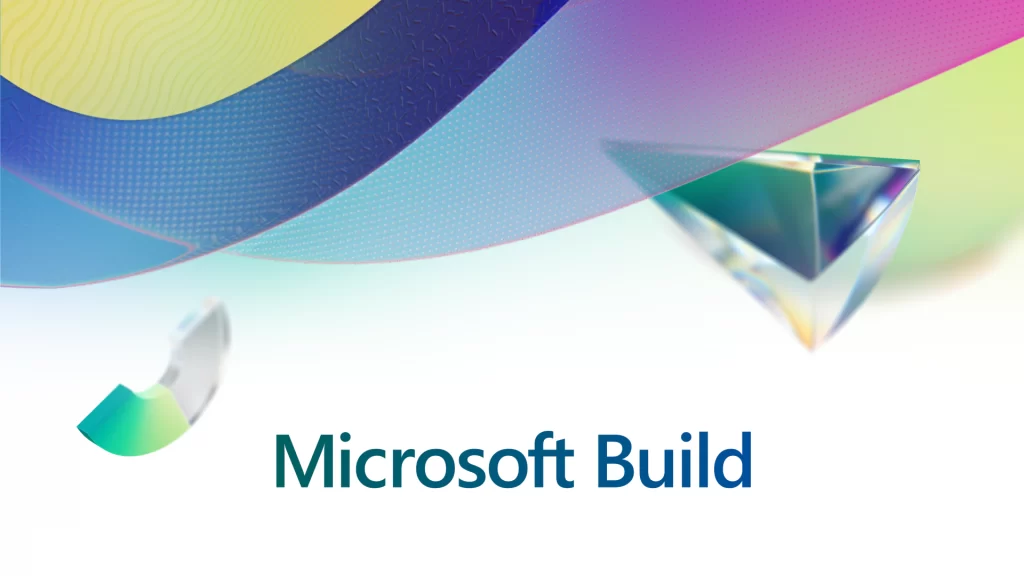
This year, two letters have come to define the technological landscape: AI. Beyond these letters lies a transformative and evolving approach to how we work, communicate, and collaborate. AI is the central theme of Microsoft Build, the annual event where developers explore the future of software and innovation.
2024 has already been a milestone year, beginning with Microsoft’s expanded partnership with OpenAI in January, aimed at accelerating AI breakthroughs and sharing them broadly. In February, Microsoft introduced a new AI-powered Bing search engine and Edge browser, revolutionizing the largest software category: search.
Key milestones since then include:
Expanded Azure OpenAI Service with support for ChatGPT and GPT-4.
New Copilots across various platforms, including Dynamics 365, Microsoft 365, and Power Platform.
AI-powered Bing expansion, now integrated into the Windows 11 taskbar, mobile devices, and Skype, along with Bing Image Creator.
At Microsoft Build, AI takes center stage, showing how it’s reshaping development and the future of work. Two key concepts being explored at the event are copilots and plugins.
Copilots and Plugins
A copilot leverages modern AI and large language models (LLMs) like GPT-4 to assist users in complex tasks. The first example of this was GitHub Copilot, introduced two years ago to help developers write code. Since then, Microsoft has integrated copilots across multiple platforms. Copilots signal a new era in software, transforming how products are developed, from user experience to security.
Plugins, initially introduced for ChatGPT and now extended to Bing, are tools that enhance AI capabilities by connecting with APIs from other software and services. They enable AI systems to retrieve real-time data, incorporate business-specific information, perform computations, and even take action for the user.
Building the AI Plugin Ecosystem
Microsoft is adopting the open plugin standard introduced by OpenAI for ChatGPT, allowing for seamless interoperability across Microsoft’s copilot platforms, including ChatGPT, Bing, Dynamics 365, and Microsoft 365. This shared plugin platform allows developers to create applications that respond to natural human language.
Bing is adding support for new plugins, including those from Expedia, Instacart, and Zillow. In addition, Bing will become the default search engine for ChatGPT, delivering up-to-date answers with citations directly within the chat experience.
Extending Microsoft 365 Copilot with Plugins
Developers can now integrate their services into Microsoft 365 Copilot through plugins, including existing ChatGPT and Bing plugins, Teams message extensions, and Power Platform connectors. With tools like the Microsoft Teams Toolkit for Visual Studio, building new plugins for Microsoft 365 Copilot is easier than ever. Over 50 partner plugins are available now, with thousands more expected by the time of general availability.
Azure AI: New Tools for Building Next-Gen AI Apps
Microsoft introduced Azure AI Studio, making it simple to integrate external data into Azure OpenAI Service. Azure Machine Learning has also been updated to support prompt flow, allowing developers to construct prompts more easily while using open-source solutions like Semantic Kernel.
Azure OpenAI Service now supports a Provisioned Throughput SKU for dedicated capacity and plugins that integrate external data sources. Currently, over 4,500 customers are using Azure OpenAI Service.
Responsible AI Development
Microsoft is committed to developing AI responsibly, ensuring a positive impact. At Build, they introduced Azure AI Content Safety, which helps businesses create safer online spaces. New tools in Azure Machine Learning also help evaluate AI models for errors and biases, supporting more fair and accurate applications in natural language processing and computer vision.
Microsoft is also rolling out media provenance capabilities in Microsoft Designer and Bing Image Creator, enabling users to verify whether images or videos were generated by AI through cryptographic methods.
Microsoft Fabric: A Unified Analytics Platform
In this AI-powered era, data is essential. Microsoft unveiled Microsoft Fabric, a unified analytics platform that brings together data engineering, integration, warehousing, science, and real-time analytics, all connected to a single repository called OneLake. This platform empowers users of all technical levels to harness their data and unlock its potential with AI-driven insights.
With Copilot in Microsoft Fabric, customers can create dataflows, pipelines, machine learning models, and visualizations using conversational language.
AI-Powered Future with Partners
Collaborations with partners like NVIDIA enable the development and deployment of enterprise-ready AI applications. Microsoft’s Dev Box service has also gained new features, including customization and ready-to-use developer images, with general availability slated for July.
Introducing Dev Home and Windows Copilot
Launching in preview at Microsoft Build, Dev Home is a new Windows experience that simplifies cloud development setups. It connects with GitHub and cloud environments like Microsoft Dev Box. Meanwhile, Windows Copilot will centralize AI assistance, integrating Bing Chat and third-party plugins to streamline users’ work on Windows 11. This suite of announcements at Microsoft Build underscores how AI is not only transforming development but also shaping the future of work, creating more intuitive, efficient, and powerful tools for users worldwide.
